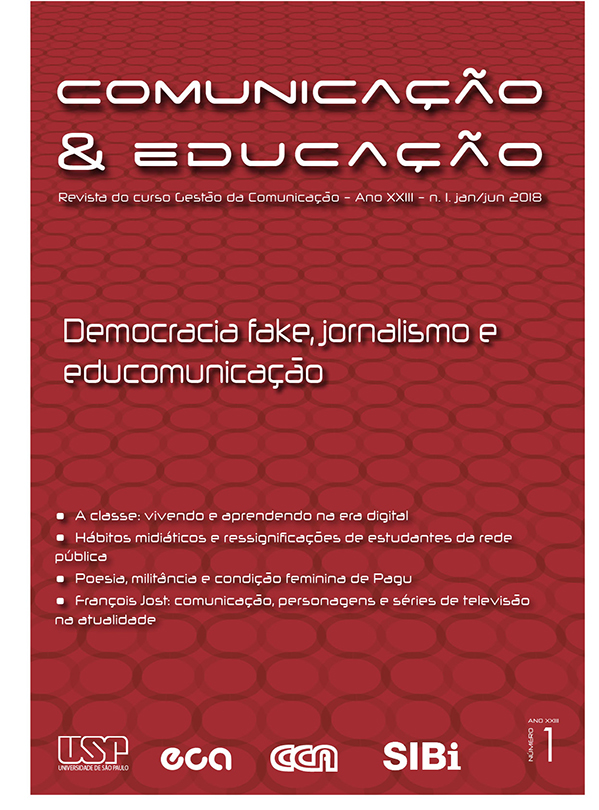François Jost: between intimacy and evil (communication, characters and television series)
DOI:
https://doi.org/10.11606/issn.2316-9125.v23i1p140-148Keywords:
television studies, television series, communication on the internet, analysis of television seriesAbstract
The French professor and researcher François Jost has dedicated himself to Communication Studies and, more specifically, to Cinema and Television Studies based on several perspectives and approaches. He is an Emeritus Professor of Information and Communication Sciences at University Sorbonne Nouvelle – Paris 3, where he founded the Center for the Study of Images and Sounds (CEISM) in 1996, which he coordinated until 2016. At the same University, he directed the laboratory of Communication, Information and Media (CIM) from 2012 to 2016. He directs the magazine Télévision, published by the CNRS éditions (Centre National de Recherches Scientifiques – CNRS publishing house). He is a visiting professor in many European, Latin American and Canadian universities. It is worth mentioning that the results of their research in these centers, as well as seminars and conferences conducted in Brazil, have impacted television studies in our country. He has dozens of books published in France, many of which were translated into other languages. In Brazil, so far, he published Seis lições sobre a televisão, in 2004, A narrative cinematográfca, with André Gaudreault as co-author, in 2009, Compreender a televisão, em 2010, and Do que as series americanas são sintoma, in 2012. Two of his most recent books, Les nouveaux méchants: quand les séries américaines font bouger les lignes du bien et du mal and La méchanceté en actes à l’ère numérique4 serve as grounds for some of the questions in this interview.Downloads
Downloads
Published
Issue
Section
License
I authorize the publication of the submitted article and soon the copyrights to the magazine, in the printed and electronic version, if it is approved after the evaluation of the reviewers.
I understand that readers may use this article without prior request, provided the source and authorship are mentioned. Readers are not authorized to use this article for reproduction, in whole or in part, for commercial purposes.

































